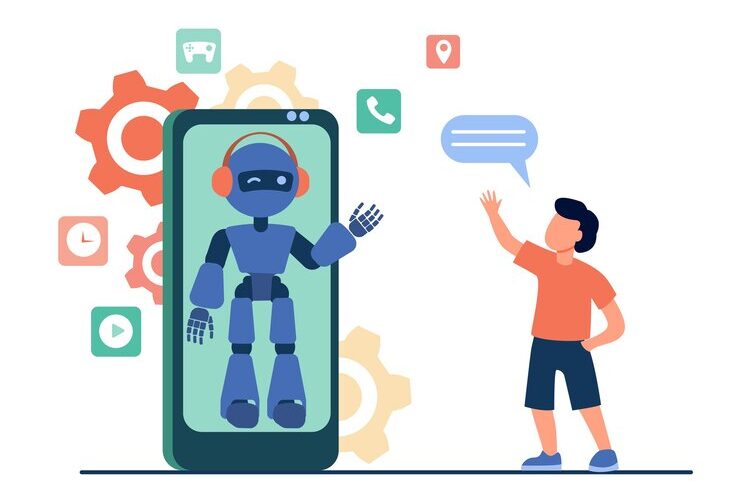The Ethics of Artificial Intelligence: A Critical Discussion
As Artificial Intelligence (AI) continues to evolve and become more integrated into our daily lives, it raises important ethical questions. The impact of AI on society is profound, influencing everything from job automation and data privacy to decision-making and human rights. In this blog, we’ll explore some of the critical ethical issues surrounding AI and how businesses, governments, and individuals can navigate these challenges.
1. Bias and Fairness in AI
One of the most significant ethical concerns in AI is bias. AI algorithms are trained on historical data, and if that data is biased, the resulting AI models may perpetuate or even exacerbate existing inequalities. For instance, if an AI system is trained on biased hiring data, it may discriminate against certain demographic groups, leading to unfair outcomes. Ensuring fairness in AI requires careful attention to the data used to train models, as well as regular audits to detect and address biases. Transparency in AI development and decision-making is essential to build trust and ensure that AI systems are equitable and just.
2. Data Privacy and Security
As AI systems become more capable of collecting and analyzing personal data, concerns around privacy and security are growing. AI technologies like facial recognition, location tracking, and social media monitoring can be used to gather detailed information about individuals without their consent. Protecting data privacy and ensuring that AI systems comply with regulations like the GDPR (General Data Protection Regulation) is critical for preventing misuse. Businesses must implement strong data protection measures, be transparent about data collection practices, and give individuals control over their personal information.
3. Job Displacement and Automation
AI and automation technologies have the potential to disrupt labor markets by replacing jobs that were traditionally performed by humans. While AI can increase efficiency and reduce costs, it also raises concerns about job displacement, especially in industries like manufacturing, retail, and transportation. Governments and businesses need to proactively address these issues by investing in reskilling and upskilling programs, helping workers transition to new roles in an AI-driven economy. Ethical AI development should prioritize the well-being of workers and ensure that the benefits of AI are shared across society.
4. Accountability and Transparency in AI Decision-Making
As AI systems are increasingly used in high-stakes decision-making, such as healthcare diagnostics, criminal justice, and lending, the question of accountability becomes more critical. AI systems, particularly deep learning models, are often considered “black boxes” because their decision-making processes are difficult to interpret. This lack of transparency makes it challenging to understand why a decision was made and whether it was fair or accurate. To address this, AI developers must strive for greater transparency in their models, ensuring that decisions made by AI systems can be explained and justified.
5. The Risk of Autonomous Weapons
Another significant ethical concern is the potential use of AI in autonomous weapons systems. The development of AI-powered drones, robots, and other military technologies raises questions about the morality of allowing machines to make life-and-death decisions without human intervention. The potential for AI to be used in warfare could lead to unintended consequences, including the escalation of conflicts and loss of control over military operations. International regulations and treaties will be essential in ensuring that AI is used responsibly and ethically in defense applications.
In conclusion, while AI offers incredible potential, it also presents significant ethical challenges that need to be addressed. Ensuring fairness, protecting privacy, addressing job displacement, increasing transparency, and preventing the misuse of AI are all critical issues that require careful consideration and action. By promoting ethical AI development, we can ensure that the benefits of AI are realized in a way that is fair, responsible, and beneficial for society as a whole.




